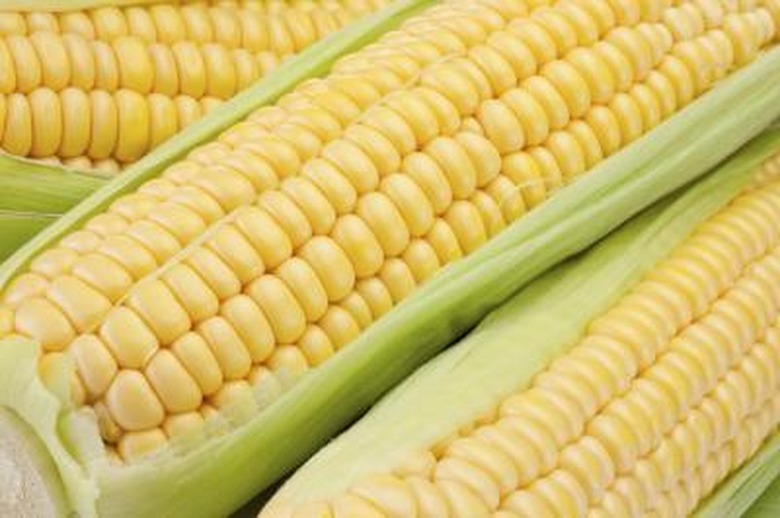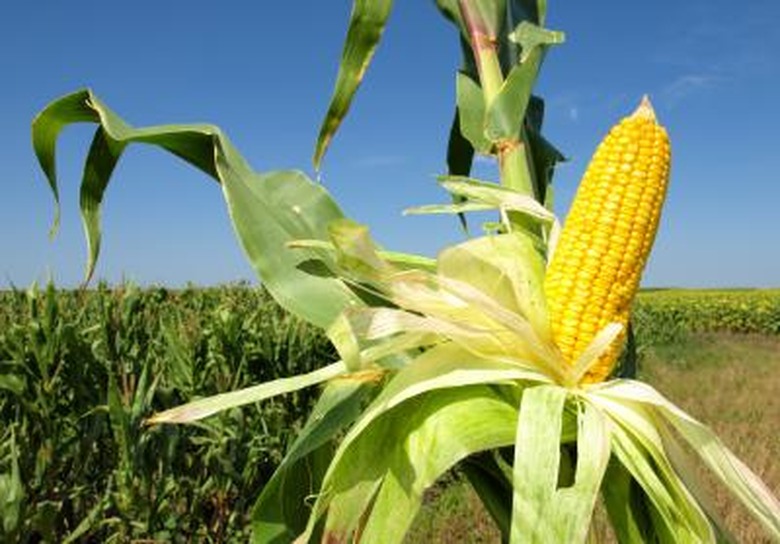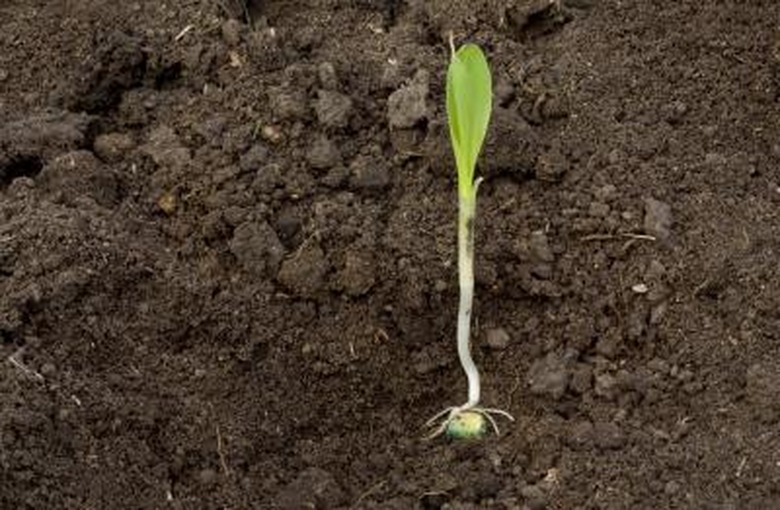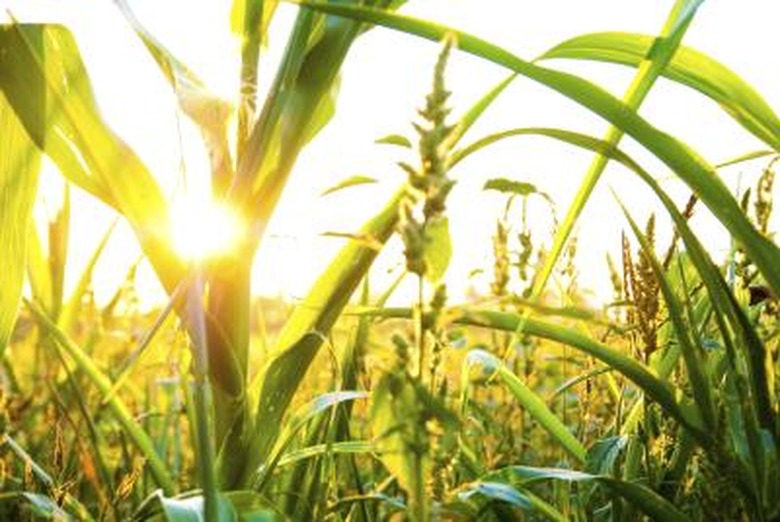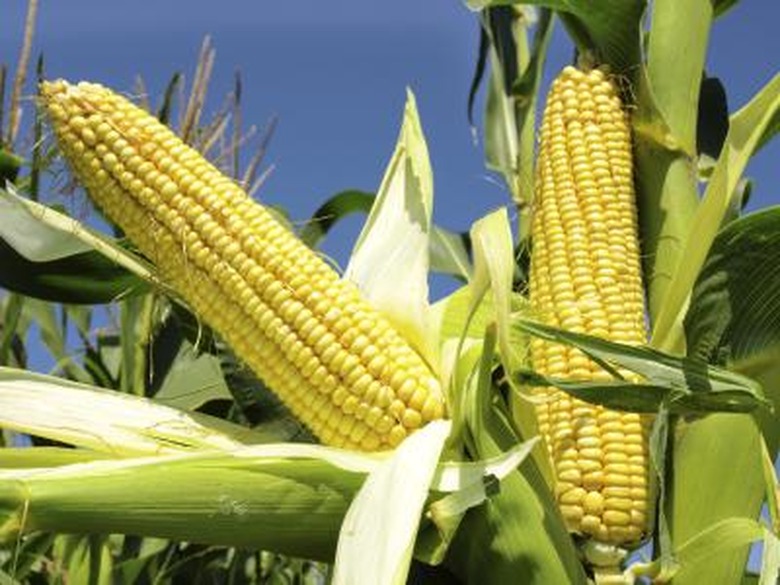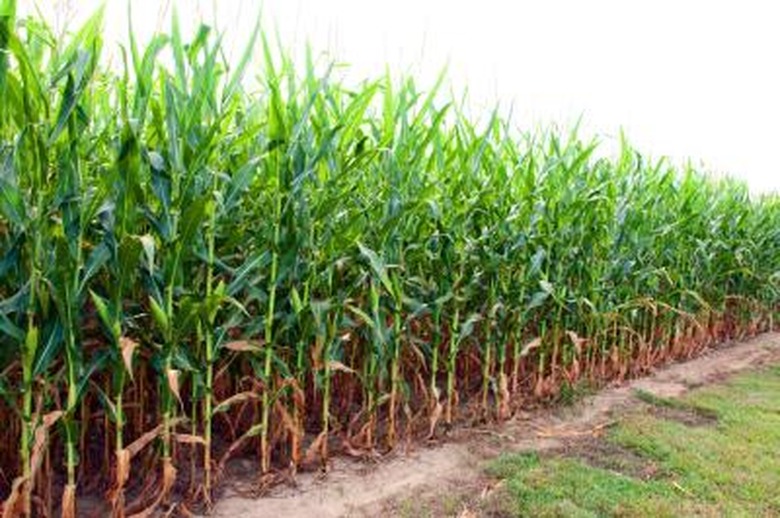Corn Plant Life Cycle
Corn grows easily in a home garden and on large farms during the summer, with sufficient space, soil nutrients and sunlight. The many corn hybrids grow at varying rates and produce different yields, but the life cycle of all corn is the same.
Identification
Corn, also known as sweet corn or maize (Zea mays), matures about 125 days after planting, with 20 leaves and one to two ears per plant. A corn plant is called a stalk.
Germination
Corn seeds are planted in the ground, where they soak up water and burst the outer covering, called the pericarp. The corn seed, or embryo, sprouts and begins growing. Part of the corn embryo grows into the soil and becomes the root system that absorbs nutrients and water.
- Corn grows easily in a home garden and on large farms during the summer, with sufficient space, soil nutrients and sunlight.
- Corn, also known as sweet corn or maize (Zea mays), matures about 125 days after planting, with 20 leaves and one to two ears per plant.
Plant Growth
The corn stalk pushes through the soil, forming 15 to 20 broad leaves that absorb energy from the sun through the process of photosynthesis. Photosynthesis converts sunlight, water and carbon dioxide to produce sugar that feeds the growing corn plant.
Maturation
The mature corn plant begins forming ears with tassels on the top of the plant. Pollen on the tassels fall on silks in the juvenile ears. Pollen is transferred to the silks by wind, insects or birds. This produces corn kernels in about five days. Mature corn ears are ready for harvest about 20 days after silking.
- The corn stalk pushes through the soil, forming 15 to 20 broad leaves that absorb energy from the sun through the process of photosynthesis.
Significance
Corn plants are used in industry, cosmetics, food and animal feed. About 75 percent of all commercial food items contain some form of corn. More than 50 percent of corn crops are grown for animal feed.
Plant Between Corn?
The roots of bean plants are deeper than roots on corn stalks, so the plants do not compete in the same soil level. The corn also acts as a support for the beans as they grow. Plant the beans when the corn is about 4 to 6 inches tall. Plant winter squash when you plant the beans. The roots on the squash vines are deeper than the corn and beans so there is no competition between the plants. The combination of corn, beans and squash is sometimes referred to as the "Three Sisters" garden. Cucumbers prefer the cooler temperatures and help retain the moisture in the soil for the corn. The roots of the cucumber vines run slightly deeper into the soil than the corn, so the plants do not compete with each other. You can mix melons, cucumbers and squash between corn plants to increase the garden harvest. Each of the plants is a good neighbor to beans as well as the corn.
- Corn plants are used in industry, cosmetics, food and animal feed.
- The roots on the squash vines are deeper than the corn and beans so there is no competition between the plants.
